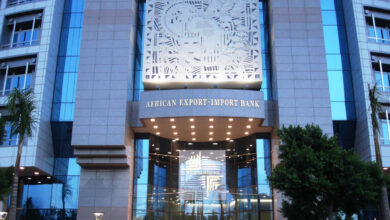New BoG Governor Unveils Ambitious Plan to Tame Inflation

Newly sworn-in Governor of the Bank of Ghana (BoG), Dr. Johnson Asiama, has outlined an ambitious plan to rein in inflation, promising a proactive and data-driven approach to monetary policy.
His strategy aims to restore price stability and ensure sustainable economic growth, learning from past successes and pitfalls in Ghana’s economic history.
Speaking at his swearing-in ceremony, Dr. Asiama emphasized the need for advanced data analytics and artificial intelligence (AI) in inflation management, coupled with enhanced coordination between the BoG and government agencies, particularly in managing food prices—a key driver of inflation.
Lessons from the Past: Single-Digit Inflation Achievements
Ghana has previously achieved single-digit inflation under both the current ruling National Democratic Congress (NDC) and past administrations, particularly between 2010 and 2012 when inflation dropped below 10%. The economic environment at the time was marked by strong fiscal discipline, prudent monetary policy, and relative stability in key sectors. However, similar gains in the past have been short-lived, often due to external shocks, inconsistent policy actions, and fiscal slippages.
Dr. Asiama acknowledged these past successes while cautioning against policy inconsistencies that have, at times, sent mixed signals to markets. His administration aims to avoid such pitfalls by ensuring consistent and transparent monetary policy execution.
Key Inflation-Fighting Reforms
To strengthen Ghana’s inflation-targeting framework, Dr. Asiama announced several critical policy shifts:
- Enhancing transparency in monetary policy by reforming inflation targeting mechanisms.
- Discontinuing differentiated cash reserve requirements, opting instead for open market operations (OMOs) to manage liquidity effectively.
- Improving BoG’s communication strategy and increasing dialogue with commercial banks to ensure predictability and stability in the financial sector.
Market Confidence and Inflation Outlook
Despite current inflationary pressures, Dr. Asiama expressed confidence that inflation will gradually return to the target range within the forecast horizon. His administration’s emphasis on precision, coordination, and technological advancements is expected to bolster market confidence and ensure long-term economic stability.
Analysts will be watching closely to see if these reforms can deliver lasting results, especially in light of Ghana’s past struggles to sustain single-digit inflation.
As of January 2025, Ghana’s annual consumer inflation rate has slightly decreased to 23.5%, down from 23.8% in December 2024. This marks the first decline after four consecutive months of rising inflation.
Despite the slight improvement, the current inflation rate remains significantly above the Bank of Ghana’s target range of 6% to 10%. The central bank has indicated that it could take longer than initially anticipated for inflation to return to this target range.




